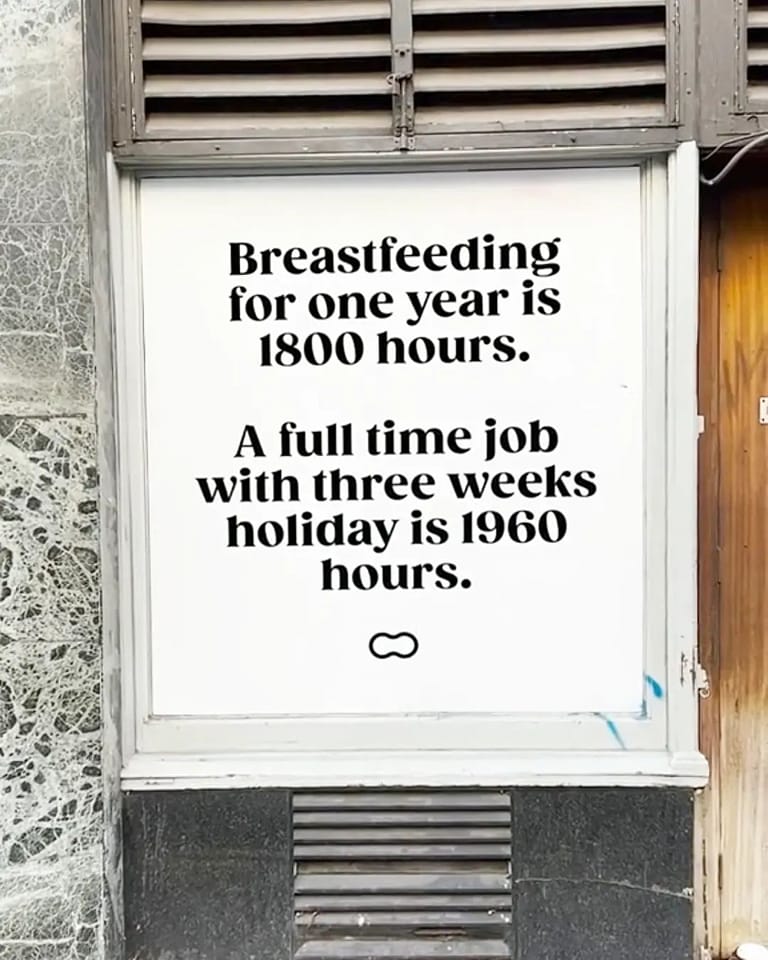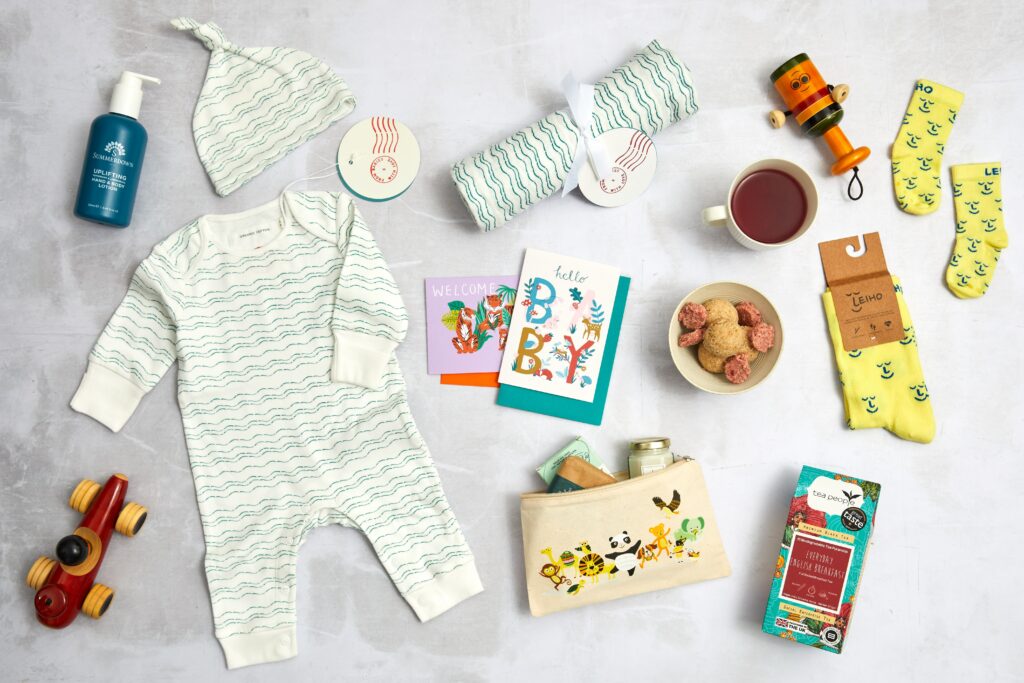How to create meaningful inclusion for mothers at work
8/3/2024
Mother’s Day is an excellent opportunity to celebrate the mums in your company. But gifts to mark the occasion only mean something when they’re paired with supportive policies.
With that in mind, Mother’s Day can also prompt us to think about how we treat colleagues raising children. How inclusive and equitable is our workplace culture, in this respect?
We’ve been reflecting on questions like these at Social Supermarket HQ in recent times, since our Head of Marketing & Brand, Katie announced her pregnancy and more recently, transitioned back from 12 months of maternity leave.
Drawing on Katie’s own experiences and insights, let’s unpack some of the challenges working mothers face and ways to create a more supportive environment.
Challenges for mums at work
Many women are anxious about how pregnancy and motherhood will impact their work life. Naturally so, given the life-altering process it is and the new level of caregiving responsibility mums take on.
Katie summed up her nerves around this transition: “I always considered Social Supermarket to be my “brand baby” and so I was apprehensive about how that would work when I had a human baby! I learned recently that the brain rewires to such an extent during pregnancy and new motherhood that it’s comparable only to adolescence. So wondering if I’d be returning to paid work as the same person was a concern.”
But it’s not only the more internal and personal changes that affect work life. Many of the issues for women juggling motherhood and their careers are structural and ingrained in company culture and wider society.
Money worries and “fake” flexibility
With childcare in the UK among the world’s most expensive, finances can be an immense source of strain. The stats on this speak volumes: Pregnant Then Screwed found that three-quarters of mothers who pay for childcare say it doesn’t make financial sense for them to work. Meanwhile, low parental leave pay combined with the cost-of-living crisis is forcing mums to return to work early.
The problem of childcare becomes harder still without decent flexible working policies. This conversation might have moved forward, thanks to the hard work of campaigning groups like Mother Pukka and the passing of the Flexible Working Bill, which will give employees the legal right to request flexible work this year. But a Careering into Motherhood study has shown how employers still aren’t truly adaptable to schedules and bandwidth of mothers.
Their survey highlighted how “fake” flexibility is actually burdening working mums further. Mothers reported that many managers expect full-time work to be completed within reduced hours and show negativity towards flexible working requests. And 46 per cent of participants also believed asking for flexibility impacts future promotion opportunities.
The Pension Pay Gap also impacts women and especially working mums. The pension contributions of new mums fall during maternity leave and it’s a struggle to make up the loss. It’s just one of the reasons the average woman in hertheir late fifties has built up just 62% of the average pension wealth of a man.
Glass ceilings for working mums
That concern brings us to another challenge for working mums: career progression. It’s well documented that women’s careers often become stifled after becoming pregnant, as they’re overlooked for opportunities with less investment in their professional development.
At the root of this dismissive attitude from employers lies ill-informed stereotypes and misperceptions about the ambitions, dedication and ability of working mums. According to Leaders Plus , a social enterprise helping working parents thrive in their careers, 40 percent of people believe women are less committed at work once they have a child.
That’s just not the reality, as Katie’s experience pays testament to. She’s returned to work with a new-found hunger and laser-focused precision. “I feel like I’m more attuned to what’s important now I have my daughter – in a larger, existential sense but also in my day-to-day. In some ways that’s made me feel more capable than ever before, for example, to sift through the noise.”
Employers not recognising the value of working mothers and not supporting career progression is one of the forces keeping the Gender Pay Gap wide open. Leaders Plus reports that the gap increases by 11.3% between the ages of 30 and 40 – from 5.7% to a staggering 17%. As founder Verena Hefti MBE sums up, “You can’t close the Gender Pay Gap without addressing the fact that working mums are held back on the career progression pipeline.”
Creating a supportive work culture for mums
There’s so much riding against working mums but businesses can help turn the tide, breaking down barriers and building up inclusive practices. Take some inspiration from this mini guide…
Enhanced parental leave
An enhanced parental leave policy is a great place to start with creating a supportive culture. In fact, that’s where we kicked off our journey, as Katie explains: “From the moment I announced I was pregnant the team were nothing but delighted and set to work on an enhanced parental leave policy.”
With nearly two-thirds of UK businesses offering enhanced maternity pay, this is also imperative for making you attractive as an employer and keeping hold of talented team members. It’s something the Leaders Plus Career Progression Gaps report highlighted, with the need for greater flexibility topping the list of reasons parents had left roles. No wonder M&S has recently stated retention is the main motivation in stepping up its parental leave policy.
Be sure to enshrine ample paternity leave into your policy too, to help close the gender pay gap and normalise equitable caregiving. Pregnant Then Screwed is campaigning to legally make standard paternity leave six weeks at 90% pay – but businesses don’t need to wait for a change in law to take action on this.
A more inclusive parental leave policy can also cover things like adoption leave, loss leave and gender neutrality to include same-sex parents – anything that might support employees on the transition to parenthood, no matter what that looks like.
Flexible working arrangements
Arrangements like remote work and flexible scheduling help take some of the stress out of balancing work and childcare. For Katie, a later start time so she can drop her daughter off at nursery before travelling into the London office has been a pivotal piece of flexibility. “This has a knock-on effect of enabling my husband and I to share childcare equitably too.”
Don’t forget to make your company socials inclusive too. We’re trying to be more conscious about scheduling more lunchtime meet-ups alongside after-work drinks, which often work better for parents who need to be home for bedtimes.
Advocate for the mums in your team
Restore the imbalance in opportunities for working mums by actively advocating for them and helping push their career forward. A great way to do this during maternity leave, when they aren’t there to put their own hand up, is to match them with a sponsor, who can network on their behalf and look out for opportunities for progression.

Likewise, arranging mentorship can be an excellent support for mums who’ve returned to work. It’s better still when your mentor is someone with relatable life and career experience as Katie has discovered through her mentorship with Mentors Mums. “I was match-made with a fellow Head of Marketing at a B Corp. Having the ear of someone who’s gone through the “Returnity” process and gets the business is so great.” (Fyi, “Returnity” describes the return to work as its own transitional period of time, following maternity.)
A dedicated pumping room
For mums who are breastfeeding, the question of where to pump at work will be front of mind. Make it easy for them and create a dedicated room where they can pump in privacy and comfort. This space should be practical and restful. Consider useful touches like a lock on the door, hand sanitiser, a sink, electrical outlets, somewhere comfortable to sit and, of course, somewhere safe to store milk.
Mindful conversations
Encourage your company to talk considerately about motherhood and maternity, changing up stereotyping or invalidating phrasing. Some of us might unthinkingly ask a mum who’s returned to the office if they “enjoyed their time off,” for example – but pregnancy and the early days of parenting are far from “time off” and can be anything from tiring and testing to traumatising. A tweak in language like referring to a “return to paid work” acknowledges that being a parent is a job too.

Conversations about motherhood can be painful for people who’ve lost theirs, as well as people going through fertility treatment and baby loss. With grief and experiences like these often private, you may not even know others are suffering.
How can you approach the subject sensitively, then? Being empathetic, avoiding assumptions about people’s situations and respecting boundaries about what people want to share are all solid rules to follow.
And make sure everyone knows how to reach out if they’re struggling. For instance, perhaps you have mental health first aiders in place or are able to create a buddy system, pairing returning mums with a colleague who’s also been through the experience. People are often grateful for a friendly face outside of line management they can open up to.
Get help from experts
Looking for a helping hand on your journey to providing more support for mums in your workplace? MotherBoard is a Business Charter, Community, and Event Series driving tangible change for mums working in the tech industry. Hold your team to account on advancing gender equality in the tech industry by signing their charter and implementing their minimum standards. It gives you an actionable framework of how to improve and in return you get access to support, toolkits, events and more to help you on the journey.
As well as helping parents, Leaders Plus is also a useful community for HR professionals and managers looking to be better allies to mums at work and spearhead their career progression. Sign up to their newsletter to be in the loop about their events.
Last but not least: now you’re in a good place with your policies and practices, your New Parent gifts will strike the right tone. Whether you choose to say congratulations in advance of baby’s arrival to mark the start of parental leave or send on after the baby is born, we’re here to help you find the right ethical gift to support your employee on their journey into parenthood.
Katie’s tips are to “avoid bath salts and the like – there’s usually scant time and mum may have had a C-section so has to avoid baths for a while anyway. Instead opt for a lovely bar of moisturising soap or hand cream because suddenly you’re constantly washing your hands after all those nappy changes!” She adds “don’t forget dads or the non-birthing partner. After all, they’re often forgotten so it’s a lovely chance to recognise both parents. And if in doubt, send something sweet.”

Complement your inclusive policies with thoughtful New Parent gifts as and when you need them. Better still, shop through the Gifting Platform to put the choice in their hands.




